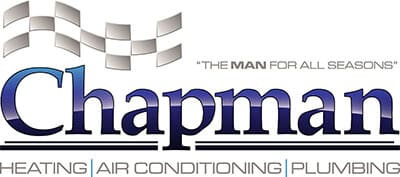Hard Water Headaches
All month long, we’re talking about water. When was the last time you stopped and thought about the quality of your water, how it’s affecting your appliances and what you can do about it? We sat down with the professional on these matters, Jeff Chapman, and asked him a few questions to find out what to look for and how to prevent damage to your home.
To get started, we wanted to know about the basics, what is hard water and how does it make its way into the home? There are a lot of misconceptions about hard water, where it comes from and what areas are typically impacted by it. Hear from Jeff what hard water is and what it isn’t.
Now that we’ve identified what hard water actually is, we need to find out what to do about it. Hard water is chock full of magnesium, calcium, and other minerals picked up by water as it travels through the ground then through your faucet. Your best option for getting rid of these hard minerals is with a water softener. A water softener is an appliance connected to your home’s water supply that filters out these minerals through a process called ion exchange. Earlier this month, we wrote about some of the side effects of hard water. If you’ve noticed any of these warning signs it’s safe to say you have hard water and need a solution. Hear Jeff’s explanation for why water softeners are necessary for mineral removal.
Do you take dishes out of the dishwasher and still need to rinse off spots and scum? That’s a clear sign it’s time to get your water softener checked out. This white residue known as scale builds up to cause those pesky water spots. Scale causes your appliances to work harder, resulting in higher bills and wear on your appliances. Yes, water softeners are great for getting rid of the minerals that cause scale, but they do a lot more. In our conversation with Jeff, we found a few other important reasons to not only have a water softener but one that is running efficiently and effectively.
Efficient systems save money in the long run. A water softener’s life span is on average 10-15 years, a well-maintained system can last up to 20 years. Keeping this system in good working order with regular checks and consistent care, the other appliances in the home will have an increased life expectancy as well.
We often think of pipes when thinking about hard water and damage to the home, but the truth is that the appliances that use water every day for their functionality suffer first. Leaky pipes are no fun, and can be expensive to replace, but the real danger of hard water is for the appliances in your home, which are also expensive and difficult to replace.
Now that we know more about hard water, take a look at your own system for removing these harmful minerals. If you’ve noticed any of these issues around your home or from your appliances, give the plumbing professionals at Chapman a call at 317-291-4909 or schedule an appointment online.
Think you might have a bigger plumbing problem? Read more on the subject here and schedule an appointment with one of our plumbing technicians for everything from pipes to appliances.
Give Chapman | Heating | Air Conditioning | Plumbing | to provide plumbing services for your home today





